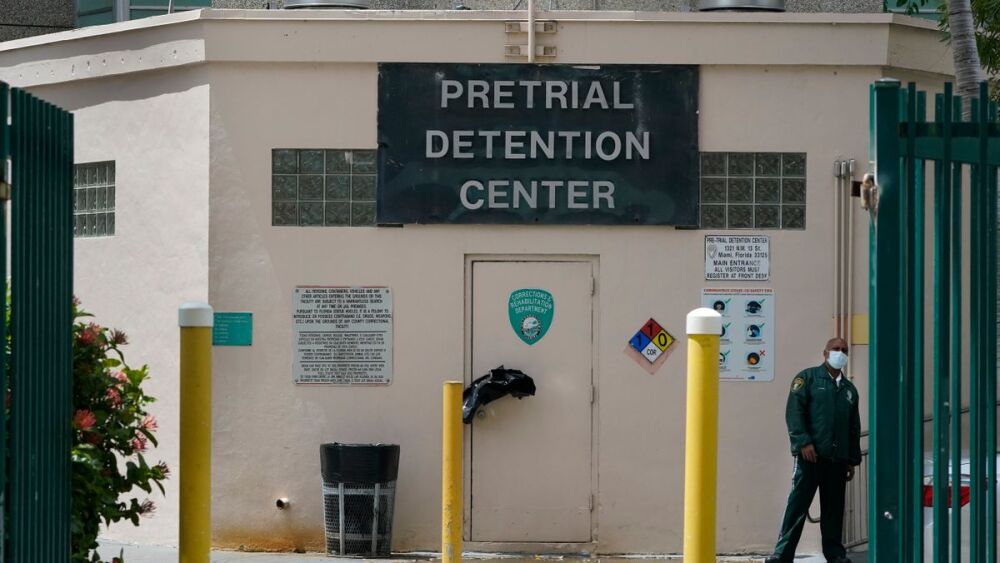By David Ovalle
Miami Herald
MIAMI, Fla. — Angela Toribio-Beltres, 50, would spend $50 a week to call her husband, who is awaiting trial in a Miami-Dade jail. For a housekeeper raising two children on one income, it was tough — especially during the height of the pandemic, when her hours dried up.
“It was very hard. It was a huge gap,” Toribio-Beltres said. “Sometimes, we’d have to go without eating to be able to talk to him.”
But Miami-Dade County, after working with inmate advocacy group Beyond the Bars, has slashed the amount it charges to inmates in its three facilities. Starting this month, phone calls are now about 5 cents per minute, down from 14 cents per minute, Miami-Dade Mayor Daniella Levine Cava said.
Inmates will also get two free 15-minute calls per week, down from 7-minute calls before.
The price slash, inmate advocates say, is a small but significant step in reforming a correctional telecom system that has long charged exorbitant rates to people behind bars. And it follows similar moves in major U.S. cities such as San Diego, San Francisco and New York City.
“This was really the right moment,” Levine Cava said in an interview. “The need was great, and the opportunity was great.”
Miami-Dade’s jail phone system is run by Global Tel-Link, which charged at least 14 cents per minute, amounting to $6.8 million per year. The county gets over 60 percent of the money brought in.
In all, the county will be absorbing over $2 million through July 2022, a shortfall being paid for through the federal COVID-19 relief program known as the American Rescue Plan. GTL’s contract is up then, according to the county, and officials say they are looking at other cities’ programs as models for possibly implementing free jail calls in Miami-Dade.
GTL did not return a request for comment.
For years, critics have blasted correctional telecom companies such as GTL and Securus for charging excessive amounts that put a burden on struggling families. In one high-profile case, GTL was sued for charging inmates in New Jersey up to 100 times the normal rates; last year, a judge approved a $25 million settlement.
“In fact, jail/prison systems throughout the country, including Miami, used to provide free phone calls until the mid 90s, until these prison telecom companies entered the scene,” said Maya Ragsdale, the executive director of Miami’s Beyond the Bars, who worked with the mayor’s office to push the measure.
But reforms have begun across the country.
Under President Joe Biden, the Federal Communications Commission announced a cap on out-of-state and international call rates — 14 cents a minute for jails, and 12 cents a minute for prisons, down from a cap of 21 cents. The new cap went into effect Oct. 26.
Across the states, officials have also sought to reign in costs of local calls. Connecticut is now offering free calls, video chats and email to people behind bars, as are cities such as New York, San Diego and San Francisco. In Colorado and Iowa, correctional facilities have partnered with a nonprofit, Ameelio, to offer free video conferencing calls for inmates and their loved ones.
The COVID-19 pandemic spurred many reforms — with relatives unable to visit inmates in person at Miami-Dade jails, the corrections department began offering free weekly 15-minute video chats. Those chats will continue free of charge, Corrections Director Daniel Junior said Monday.
Ragsdale, of Beyond the Bars, said the 5 cents is still higher than places such as Dallas, where it costs one cent per minute for inmates to use the phone. “This is still way out of line with the trend towards ensuring free communication,” she said. “But it’s a start.”
For the family of Yunior Beltres, who has been awaiting trial on allegations in a sex-crimes case since 2019, the savings has been welcome.
His daughter, Katherine Passley, 28, said she is only spending around $18 a week now, so that her young son can talk to his abuelo every night.
“It’s been quite a big savings. It’d been difficult. From the commissary to phone calls — all the fees add up,” said Passley, who serves as the deputy director of Beyond of the Bars. “We’re really grateful for the work the mayor’s office has done, and for the advocacy work of Beyond the Bars.”
©2021 Miami Herald












